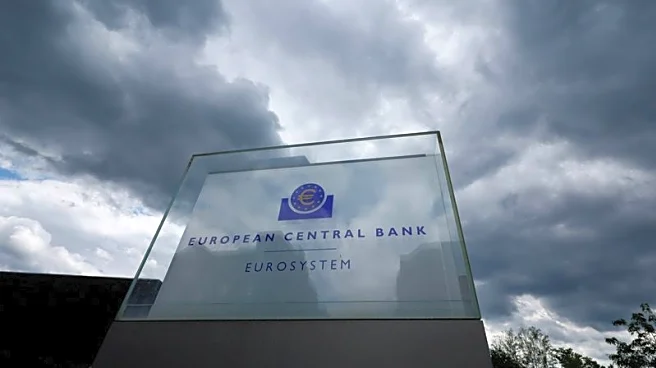By Balazs Koranyi and Francesco Canepa
FRANKFURT (Reuters) -Curtailing the U.S. Federal Reserve's independence could backfire and push up borrowing costs rather than lower them while disrupting the entire
global financial system, European Central Bank board member Isabel Schnabel said.
U.S. President Donald Trump has been exerting relentless pressure on the Fed to cut interest rates and publicly discussed firing Fed Chair Jerome Powell, whom he called a 'numbskull' and a 'moron', for not giving in to his demands.
Upping this battle, Trump last month attempted to fire Fed Governor Lisa Cook, setting off a critical legal test over the Fed's ability to function without political interference, the cornerstone of modern central banking.
"Any attempt to undermine central bank independence is going to lead to an increase in medium and long-term interest rates," Schnabel told Reuters in an interview.
"History is very clear about the benefits of central bank independence: it lowers risk premia and it eases financing conditions for households, firms and governments," Schnabel, an academic who runs the ECB's market operations, said.
Trump is demanding lower rates to boost investment and give mortgage borrowers relief over some of the highest interest rates in the developed world.
But politically motivated rate cuts would signal that the Fed is willing to tolerate higher inflation, eroding trust among investors, who hold trillions of dollars of U.S. assets, banking on policy certainty from the Fed.
"If the loss of Fed independence happened – and I very much hope that it doesn’t – this would be very disruptive for the global financial system and it also would have an impact on the ECB," Schnabel said.
Such a loss of confidence could then push up longer-term borrowing costs, which are more relevant than short-term central bank rates for mortgages and business loans, potentially undoing any Fed effort to ease the financing burden.
The U.S. could also export higher inflation as the pandemic's key lesson was that countries struggle to fight off global inflationary developments, Schnabel said.
While such a loss of trust could also threaten the dollar's supremacy in the global financial system, there was no alternative to the greenback for now, Schnabel said.
Some European officials have argued that distrust in U.S. policy could create an opportunity for the euro to gain market share, Schnabel said the world was not yet ready to live without the dollar's supremacy.
"The big question is whether the U.S. dollar can maintain its current status," Schnabel said. "I’m inclined to think that it can."
"But if it weren’t able to, then it’s not clear what would happen in the global financial system because there is no clear alternative," Schnabel said. "The global financial system is not in a situation where it could easily live without the U.S. dollar as the key currency."
(Reporting by Balazs Koranyi; Editing by Toby Chopra)









